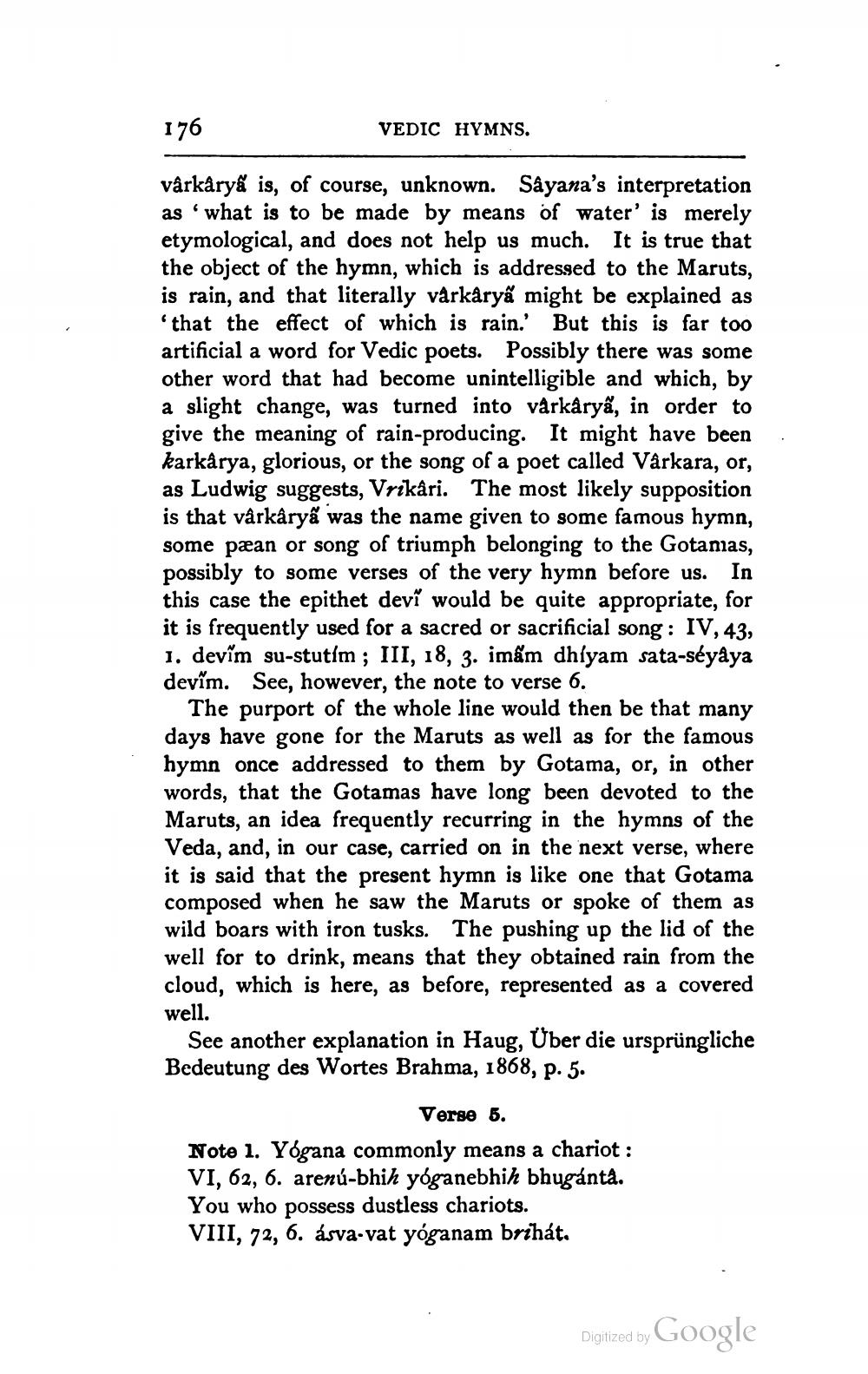________________
176
VEDIC HYMNS.
vârkarya is, of course, unknown. Sayana's interpretation as what is to be made by means of water' is merely etymological, and does not help us much. It is true that the object of the hymn, which is addressed to the Maruts, is rain, and that literally varkaryã might be explained as
that the effect of which is rain.' But this is far too artificial a word for Vedic poets. Possibly there was some other word that had become unintelligible and which, by a slight change, was turned into varkâryâ, in order to give the meaning of rain-producing. It might have been karkarya, glorious, or the song of a poet called Vårkara, or, as Ludwig suggests, Vrikâri. The most likely supposition is that vårkaryã was the name given to some famous hymn, some pæan or song of triumph belonging to the Gotanas, possibly to some verses of the very hymn before us. In this case the epithet deví would be quite appropriate, for it is frequently used for a sacred or sacrificial song : IV, 43, 1. devím su-stutím ; III, 18, 3. imấm dhiyam sata-séyaya devím. See, however, the note to verse 6.
The purport of the whole line would then be that many days have gone for the Maruts as well as for the famous hymn once addressed to them by Gotama, or, in other words, that the Gotamas have long been devoted to the Maruts, an idea frequently recurring in the hymns of the Veda, and, in our case, carried on in the next verse, where it is said that the present hymn is like one that Gotama composed when he saw the Maruts or spoke of them as wild boars with iron tusks. The pushing up the lid of the well for to drink, means that they obtained rain from the cloud, which is here, as before, represented as a covered well.
See another explanation in Haug, Über die ursprüngliche Bedeutung des Wortes Brahma, 1868, p. 5.
Verse 5. Note 1. Yógana commonly means a chariot : VI, 62, 6. arenú-bhih yoganebhih bhugánta. You who possess dustless chariots. VIII, 72, 6. ásva.vat yóganam brihát.
Digitized by
Digized by Google




